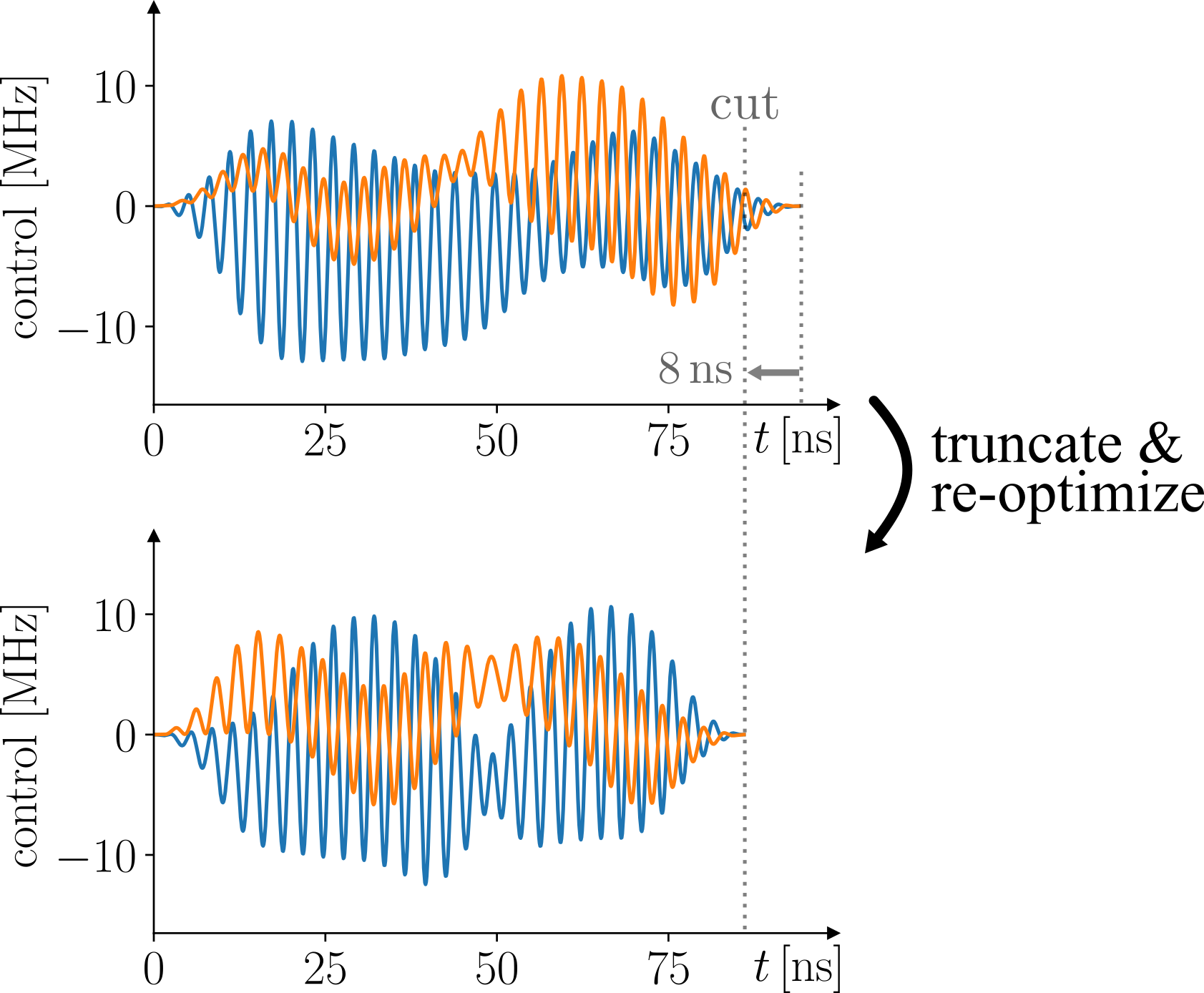For quantum optimal control tasks to realize a certain gate or state evolution, truncated control pulses can be used as initial guesses for optimizations of shorter duration. Since they originate from a previous optimization, they already drive the system close to the desired objective. In this figure, the plot on the top shows a high-fidelity pulse being truncated to a shorter duration, and the plot on the bottom is the result of re-optimizing this truncated pulse (achieving the same high fidelity at a shorter duration).
Current efforts to build quantum computers focus mainly on the two-state qubit, which often involves suppressing readily-available higher states. In this work, we break this abstraction and synthesize short-duration control pulses for gates on generalized d-state qudits. We present Incremental Pulse Reseeding, a practical scheme to guide optimal control software to the lowest-duration pulse by iteratively seeding the optimizer with previous results. We find a near-linear relationship between Hilbert space dimension and gate duration through explicit pulse optimization for one- and two-qudit gates on transmons. Our results suggest that qudit operations are much more efficient than previously expected in the practical regime of interest and have the potential to significantly increase the computational power of current hardware. DOI 10.1109/QCE53715.2022.00051
Seifert, Lennart Maximilian; Chadwick, Jason; Litteken, Andrew; Chong, Frederic T; Baker, Jonathan M,







